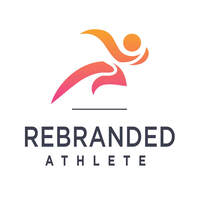|
Dr. Sarah Lepe
Author and Transition Coach Rebranded Athlete was founded by Dr. Sarah Lepe who is a former Division I Cal State University, Fullerton Volleyball Alumni. Athletics played a tremendous role throughout Sarah’s life and especially in pursuing her career goals. After the final whistle of her last game, little did she know what a challenge it would be to transition out of athletics and pursue her career. Rebranded Athlete is on a mission to help 98% of college athletes who don’t go pro, confidently pivot from the game into life after graduating. Sarah completed her Doctorate in Education with an emphasis in Transformational Leadership from Concordia University. She is passionate about helping athletes understand their purpose and drive them towards their career, reaching their full potential as they make the transition out of athletics. 1. Tell us about your background and what influenced you to create Rebranded Athlete. I grew up around sports around the age of 5. I have always been drawn to being part of the athletic world. When I ended my athletic career and transitioned into life after sports, I struggled tremendously. It took me 6 years to finally land a job in my career and when I needed a coach the most I didn’t have one. 2. Reflecting on your journey………why is it important for athletes to develop a plan while they are still actively participating in sports? It will be here sooner than you think. Preparation is the key to success. We spent so much time preparing to get to college that we need to spend the time focusing on how we are going to transform our talents into other areas of our lives. Being an athlete will always be part of who we are, but that does not define who we are. We are more than our sports and we have to find a way to take our skill set and apply it elsewhere. The world needs us! 3. You coined the four different types of athlete (the quitter, the lost athlete, the stuck athlete, the rebranded athlete) Working with former athletes in your academy, which athletic identity most athletes start from? Furthermore, have you experienced where an athlete is stuck but regresses to the lost athlete? Most of my clients identify with being stuck. They have tried a few things and have listened to some advice, but nothing has worked for them. This is really where having a coach is so important because the coach can help them see where they are actually stuck. Luckily, I have not experienced regression, but I would imagine if my clients are not giving the experience their all and trusting the process then they could regress. 4. In what week of your academy do you notice a shift in the athlete’s mindset? My clients begin to make a shift during the end of the 2nd quarter (week 3). This is the phase where they have already reflected on the value and lessons that they have learned through sports and realize how they can apply them into life after sports. In the 2nd quarter we dive deep into their purpose, discovering and uncovering more about their identity outside of athletics and what they are passionate about. They develop their core values and begin to see how they can use them as a compass to find their way and uncover what they are passionate about besides their sport. This phase they begin to see that they have a purpose beside their sport and as we turn the corner to Quarter 3, we begin to set goals and make their vision come to life by preparing to take action. 5. What have you found most rewarding from creating Rebranded Academy? Definitely hearing from the athletes I have worked with and learning about the success they have felt and had. I had one client tell me that joining my academy changed their life! I love to see my students succeed, just like when I was a classroom teacher and administrator. 6. Who is Sarah, the transitional coach vs Sarah the athlete? Also, what advice regarding life would the transition coach give to Sarah the athlete? Sarah the transitional coach has the experience and has overcome obstacles to get where she is today. She is similar to Sarah the athlete as both are competitive and driven. Coach Sarah would tell Sarah the Athlete to start thinking about life after sports sooner than she did. I would also tell her that its ok to ask for help and reach out to people when you struggle to figure out how to get to where you need and want to be. And finally, be open to new things! Get out of your comfort zone and try things. 7. What knowledge insight can we look forward to reading in your book Pivoting from the Game? My book was written as an easy read and a guide for athletes to begin to take action right away. I have added parts of my story that I hope to relate to the reader. I was once in their shoes and I want them to know that they are not alone in this process. The book is part of my coaching program and it also provides opportunities for the reader to engage and reflect right inside the book! 8. The co-author project Athlete to Entrepreneur you are apart speaks about athletes who have embark in entrepreneurship. Why do you think athletes thrive in entrepreneurship? Athletes are wired differently and we are driven. We are problem solvers because we are faced with many challenges constantly within our respective sports. Athletes thrive as entrepreneurs because they are competitive and driven, but most importantly they are self motivators. This is a key element missing for many entrepreneurs because many people have a hard time even starting. 9. Athletes are surrounding by their Circle of Love (parents, coaches, teachers, administrators, peers etc,) how important are those individuals to the athlete during the transition period? This is the most important time to surround yourself with people who will keep you on track. My goal for Rebranded Athlete is to develop a community of athletes where those in transition can go to for advice and just to have support knowing that people care about them and they are not alone. 10. What advice can you give to head coaches at the collegiate to aid in preparing their players for life after sports. Furthermore, do you believe this is an seed we should start planting in athletes at the grassroots level? Any college athletic institution should invest in not only their athletes while they are in uniform, but also when they hang the uniform up as well. Athletes need the knowledge about the transition just as they did the knowledge about their given sports program. Its important to prepare and have a game plan to get you on track. It doesn’t mean they have to have it all figure out, but at least an idea of how to navigate losing their athlete identity and attaching it to something positive in life after sports. To contact Dr. Sarah Lepe: IG: rebrandedathlete www.rebrandedathlete.com
0 Comments
Leave a Reply. |
Archives
April 2022
Categories |


 RSS Feed
RSS Feed